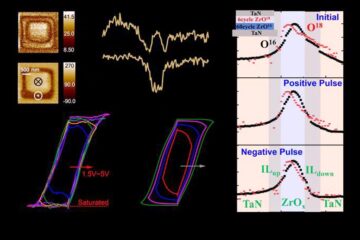Cosmic raise in cloud

New evidence that events in outer space affect the weather and climate of Earth has been revealed in a study by meteorologists at the University of Reading published in the Proceedings of the Royal Society on Wednesday 18 January.
In their paper ‘Empirical evidence for a non-linear effect of galactic cosmic rays on clouds’, Drs Giles Harrison and David Stephenson suggest that cosmic rays have a significant effect on the Earth’s lower atmosphere – particularly on levels of cloudiness.
The Reading meteorologists discovered that the chance of an overcast day decreases by 20% on days with low cosmic ray fluxes. The effect is strongest when low cosmic ray fluxes occur – this is often associated with solar flares, but may also result from changes outside the solar system.
“Back in 1959, Edward Ney suggested that variations in cosmic rays, which are charged particles mostly originating outside the solar system, could affect our weather,” said Dr Harrison. “This research now provides strong evidence supporting Ney’s suggestion, which effectively links atmospheric and space science.”
“As well as the influence of weather, our evidence shows a small yet statistically significant effect of cosmic rays on daily cloudiness. This suggests that cosmic rays are an additional external source of climate variability that should be considered when modelling past and future climate.”
To detect changes in the atmosphere from cosmic rays, Harrison and Stephenson used solar radiation measurements made by meteorological stations. They conducted a careful analysis of the UK archives of daily solar radiation observations from 1951-2004 and compared them with neutron counter cosmic ray measurements taken at Climax, Colorado, between 1951 and 2000.
Media Contact
More Information:
http://www.reading.ac.ukAll latest news from the category: Earth Sciences
Earth Sciences (also referred to as Geosciences), which deals with basic issues surrounding our planet, plays a vital role in the area of energy and raw materials supply.
Earth Sciences comprises subjects such as geology, geography, geological informatics, paleontology, mineralogy, petrography, crystallography, geophysics, geodesy, glaciology, cartography, photogrammetry, meteorology and seismology, early-warning systems, earthquake research and polar research.
Newest articles

Evidence for reversible oxygen ion movement during electrical pulsing
…enabler of the emerging ferroelectricity in binary oxides. In a recent study published in Materials Futures, researchers have uncovered a pivotal mechanism driving the emergence of ferroelectricity in binary oxides….

Next-generation treatments hitch a ride into cancer cells
Researchers from Osaka University discover that opening a channel into cancer cells helps antisense oligonucleotide drugs reach their targets. Antisense oligonucleotides (ASOs) are next-generation drugs that can treat disease by…

Boron deficiency: oilseed rape reacts as with infection and pest infestation
Genetic mechanisms uncovered… Boron deficiency has a devastating effect on oilseed rape and related plants. However, little is known about the underlying genetic mechanisms. A study shows that the response…




















